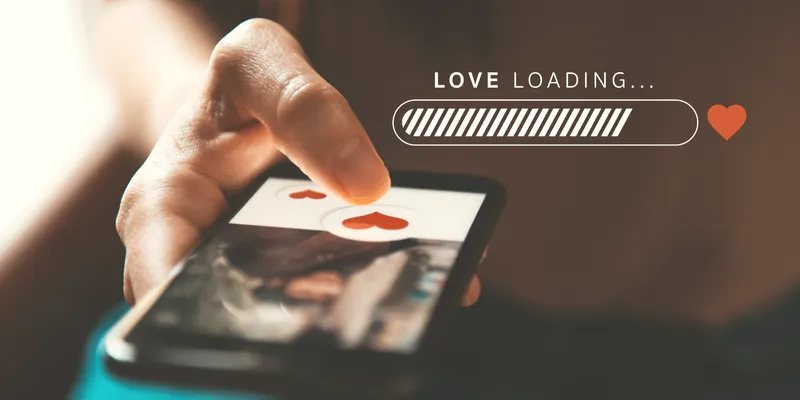Dating a person with anxiety: Here’s how you can navigate a relationship
In a relationship, anxiety can show up in the form of abandonment, jealousy, overthinking, etc. Mental health practitioners, relationship counsellors, and those in relationships tell what it means to date an anxious person.
Dating has changed by leaps and bounds over the last decade—from meeting in coffee shops to swiping on your phone. What hasn’t changed is the rush of nervousness, excitement and anxiety as you make the first move and get to know a prospect.
These feelings are valid, after all, opening up to a stranger and unpacking each other’s likes and dislikes can be quite overwhelming—especially when shows like The Tinder Swindler and Netflix’s Fake Profile keep you on your toes. Ruchika Kanwal, online dating app Bumble’s mental well-being expert and a clinical psychologist, says such anxiety can be attributed to the fear of the unknown.
“While some may breeze through the different phases of dating, others may find it to be an anxious process,” she adds.

Image source: Shutterstock
Dating 101: Why women's consent, sexual agency are critical for healthy relationships
However, dating can be an altogether different experience for someone who deals with anxiety on a daily basis. For their partner, living with an anxious person can be a little challenging at first. YS Life explores how these relationships work.
How anxiety manifests in relationships
Bhavna Arora, a dancer from Delhi has been dating her partner for four years. She calls her anxiety ‘the third wheel’ in their relationship, since it crops up every now and then without notice. While she sometimes becomes uncomfortable when her partner interacts with another woman, at other times, she gets really anxious when he is busy and can’t give her attention. This makes her feel unwanted in the moment even when she’s aware that there’s nothing wrong.
Ruchi Ruuh, a counselling psychologist from Delhi, breaks it down for us.
“Anxiety may be defined as apprehension, tension, or uneasiness that stems from the anticipation of danger, which may be internal or external. This real or perceived threat can create a rush of adrenaline and chemical reactions in the brain that lead to a flight or fight response in a person.”
Anxiety may be physically manifested through palpitation, increased heart rate, nausea, and headaches. Increased irritability, uncontrollable worry, restlessness, difficulty concentrating, and sleeplessness are some of the other symptoms.
When it comes to relationships, anxiety shows up frequently in the form of fear of abandonment, jealousy and possessiveness, difficulty in showing emotions, overthinking, and emotional dysregulation, elaborates Ruuh. The severity of anxiety in a person depends on their genetics, environmental triggers (relationships/social situations), medical conditions, and substances.
However, Ruuh highlights that some individuals who may have never experienced anxiety otherwise can exhibit such patterns in abusive or manipulative relationships.

Image source: Shutterstock
“Sometimes, the anxiety is caused within a relationship in an otherwise emotionally healthy individual. It’s not always the case that you are an anxious individual and you enter a relationship,” she reiterates.
Navigating relationships as an anxious partner
It is essential to understand that challenging behaviours, patterns and feelings will naturally show up in romantic relationships and they must not be associated with shame, shares Preeta Ganguli, a therapist and mental wellness consultant from Delhi.
“As an adult, the attachment that we once formed with our primary caregivers will show up in adult relationships. People with anxious or disorganised attachment patterns may face more anxiety when dating or in relationships. There’s nothing to be ashamed of—recognise the anxiety, hold space for it and work with it,” she adds.
While many of our unresolved issues can surface in our relationships, they can also be a very conducive space to heal, reaffirms Ganguli. One can always learn ways to cope with anxiety and work on triggers and emotional regulation with therapy.
During his last relationship which lasted two years, Mumbai-based sales professional Vishesh Malhar felt like he had been walking on eggshells. His anxiety led him to exhibit unhealthy behaviours like stalking social media and checking his partner’s phone. He hated what he was becoming and decided to do something about it after his girlfriend broke up with him. With the help of a therapist, he was able to understand the root cause of his attitude and worked on developing healthy relationship patterns.
To navigate relationships healthily, the first step is to communicate about your triggers and anxiety patterns to your partner. However, Ruuh points out that anxiety is a double-edged sword and cyclic in nature, preventing individuals from expressing their ongoing struggle.

Image source: Shutterstock
“While communication with your partner is essential, it is equally important to understand your triggers, patterns, and how these behaviours impact you in relationships. This can help you communicate your needs and boundaries effectively,” she adds.
Here are some other tips suggested by Ganguli:
- Work on grounding tools and resources to regulate yourself when you feel overwhelmed by anxiety.
- When in a calmer state, observe where the anxiety was coming from: past or present? If there is a possible actual risk or a red flag in the present, pay attention and respond accordingly.
- Talk about it with your partner if that feels safe.
“If both partners are experiencing anxiety, take a pause. Everything does not have to be solved immediately. Give the mind and body time and space to regulate and process so you can connect when either of you has the resources to give. Do not ignore your anxiety. Whether it is rooted in a past experience, past trauma, or a current risky situation, it is trying to tell you something and is a signal that something needs attention.” she advises.
Dealing with a partner with anxiety
In case your partner or date opens up and tells you they have anxiety, here’s what you should keep in mind, suggests Kanwal:
- Be empathetic towards them and hear them out.
- Don't try to be their therapist or ‘fix’ them. Opening up about your own experience can help your date feel less self-conscious about theirs.
- Communicate to learn about their fears, triggers, and values, and share your own. Help them feel safe and comfortable.
- Use accommodating language like “Is there anything I can do to help” or “I am here for you and we can deal with this together” rather than “calm down” or “don’t be anxious”.
- When it comes to planning dates, it’s best to keep the surprises to a minimum. Stick to the plan or give plenty of notice and time to adjust when the plan will change.
(Illustration by Winona Laisram)
Edited by Kanishk Singh







